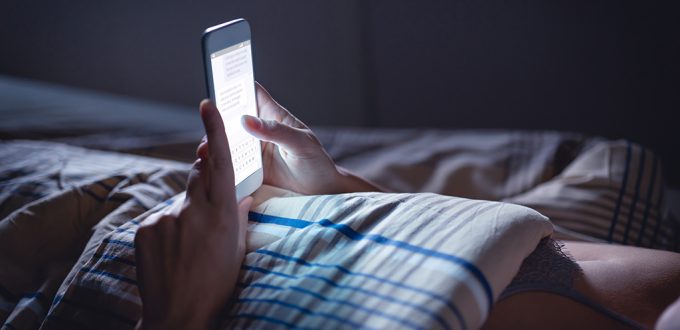Zeeko report shows Irish secondary school students 30% more likely to engage in sexting by the time they reach senior cycle
Dublin, 10th January. A risky form of online behaviour called sexting i.e. the act of exchanging sexually explicit content online in the form of images, videos and text has become a prominent feature of Irish adolescents’ communication. By senior cycle, adolescents are 30% more likely to send sexually explicit images compared to when they first enter junior cycle. There is currently no law in Ireland that specifically governs sexting, therefore education is crucial in managing children’s online behaviour.
Zeeko, headquartered at NovaUCD, announced the results of its Secondary School Digital Trend Report, a study aimed at better understanding the current digital trends among teenagers in Ireland. The study surveyed 3,231 secondary school pupils, 1,408 females and 1,823 males from 30 schools.
Sexts range from suggestive messages to images and videos, thus taking part in forming adolescents’ sexual identity. Sexting highlights include:
- 13% of secondary school students have sent a nude/semi-nude photo/video of themselves.
- 7% have sent a nude/semi-nude photo/video of themselves to someone they met online.
- 15% have shared or showed a friend a nude/semi-nude photo/video that was sent by someone else.
- 14% sexted someone who is not their partner.
Males are more likely than females to engage in all sexting behaviours measured.
- 17% of males sent a nude/semi-nude photo/video of themselves compared to 9% of females.
- 18% of males and 8% of females sexted a non-partner.
- 10% of males sexted someone they first met online compared to 4% females.
All sexting behaviours measured rise throughout each year of secondary school:
- 4% of 1st Years sent sext image compared to 34% of 6th Years.
- 3% of 1st Years sexted someone they first met online compared to 15% of 6th Years.
- 4% of 1st Years sexted a non-partner compared to 34% of 6th Years.
- 6% of 1st Years shared a sext they had received vs. 27% of 6th Years.
Dr Marina Everri, a social psychologist from the London School of Economics and Political Science (LSE) and Head of Research, Zeeko said, “We observed a progressive increase in sexting throughout secondary schools. This should not be considered as an alarming result, rather it should be interpreted considering adolescents’ developmental tasks and needs. Adolescence is a crucial phase in defining gender identity and sexual orientation. Adolescents explore sexuality, they are eager to meet peers and partners and establish romantic relationships.”
“Texting, sharing videos and photos, encounters with strangers and looking for strangers online to meet offline respond to adolescents’ need to expand their social network outside of their families. However, there is a need for education programmes that teach adolescents how to critically assess the content and potential risks associated with sexting”, she concluded.
Smartphone is the main device used to access the internet by adolescents. In secondary schools more than 90% of young people have a smartphone and use it constantly. Dr Everri’s research results show that duration and impact of screen time on health is underestimated by adolescents because there is a continual exchange between offline and online activities to the extent that mobile devices are incorporated into daily routines such as eating.
The most popular social media is Snapchat with 69%, followed by Instagram 42%, YouTube 38% and Facebook 34%. Gender differences play a significant role in socializing online. Results show that social media is more popular among females with 85% preferring Snapchat compared to 57% of males, while 63% chose Instagram compared to 25% of males. Males prefer games over social media with 62% going online using a games console compared to 14% of females.
Secondary school students are increasingly more likely to engage with and meet strangers as they get older:
- 32% of 1st Years spoke to strangers online compared to 70% of 6th Years.
- 8% of 1st Years met strangers physically compared to 38% of 6th Years.
Results also show that secondary school students are aware of online risks:
- 76% consider posts, photos and videos they put online as being something serious or very serious.
- 47% say talking to a person they first met online is only kind of serious or not serious at all.
- 79% say that cyberbullying is very serious.
The percentages of cyberbullying experiences have not changed over the last few years. In secondary schools 20% of students are victims of cyberbullying. This is a stable indicator at both national and international level. However, the percentage of children who have witnessed cyberbullying is around the 40%. In general, younger children and adolescents consider cyberbullying as a very serious issue, 83% of 1st Years compared to 71% of 6th Years.
Looking at gender differences with respect to both sexting and cyberbullying shows that female adolescents are twice as likely to be victims of cyberbullying - 22% of females vs. 11% of males. Male adolescents experiment with sexuality and engage with strangers more than their female peers. Males are less likely to identify social aggression as bullying in both online and offline contexts.
In the 2016-2017 school year Zeeko visited over 235 primary and secondary schools across Ireland and delivered safety seminars to over 60,000 pupils, 2,900 teachers and 6,000 parents. Joe Kenny, Zeeko founder and CEO said: “Research underpins everything we do at Zeeko. We are putting great efforts to further develop our Internet safety message to reach larger numbers of children in Ireland and across Europe so they can safely benefit from technology and the Internet“.
ENDS 10th January, 2018
For further information contact
Dr Marina Everri, NovaUCD, Head of Research at Zeeko, t: +44 (0)7856 707986, e: marina@zeeko.ie
or
Michelle Doyle, University College Dublin, Communications Manager, t: +353 (1) 716 3712, m: +353 87 067 7561, e: michelle.doyle@ucd.ie
Editor Notes
Zeeko, an Enterprise Ireland high-potential start-up (HPSU), is headquartered at NovaUCD, the Centre for New Ventures and Entrepreneurs at University College Dublin. The company is founded by Joe Kenny in 2013. Zeeko works with parents, teachers and children to promote digital health and internet safety among primary and secondary school children. www.zeeko.ie
At NovaUCD, the hub for new ventures and entrepreneurs at University College Dublin, we nurture and support new high-tech and knowledge-intensive companies as part of UCD’s mission. At NovaUCD we provide purpose-built, state-of-the-art incubation facilities alongside a comprehensive business support programme for client companies such as Zeeko. NovaUCD has been funded through a unique public-private partnership that includes AIB Bank, Arthur Cox, Deloitte, Enterprise Ireland, Ericsson, Goodbody Stockbrokers, UCD and Xilinx. Nova UCD


